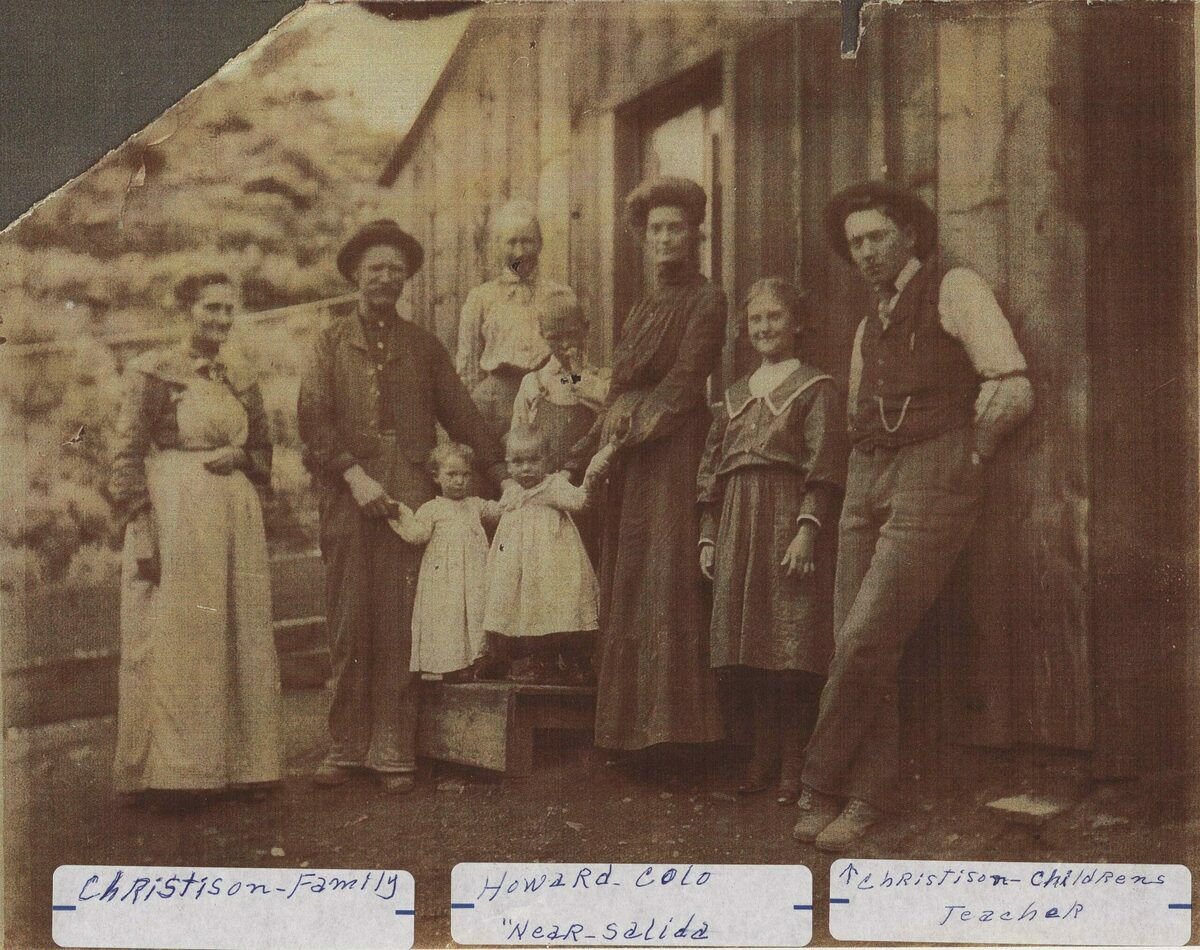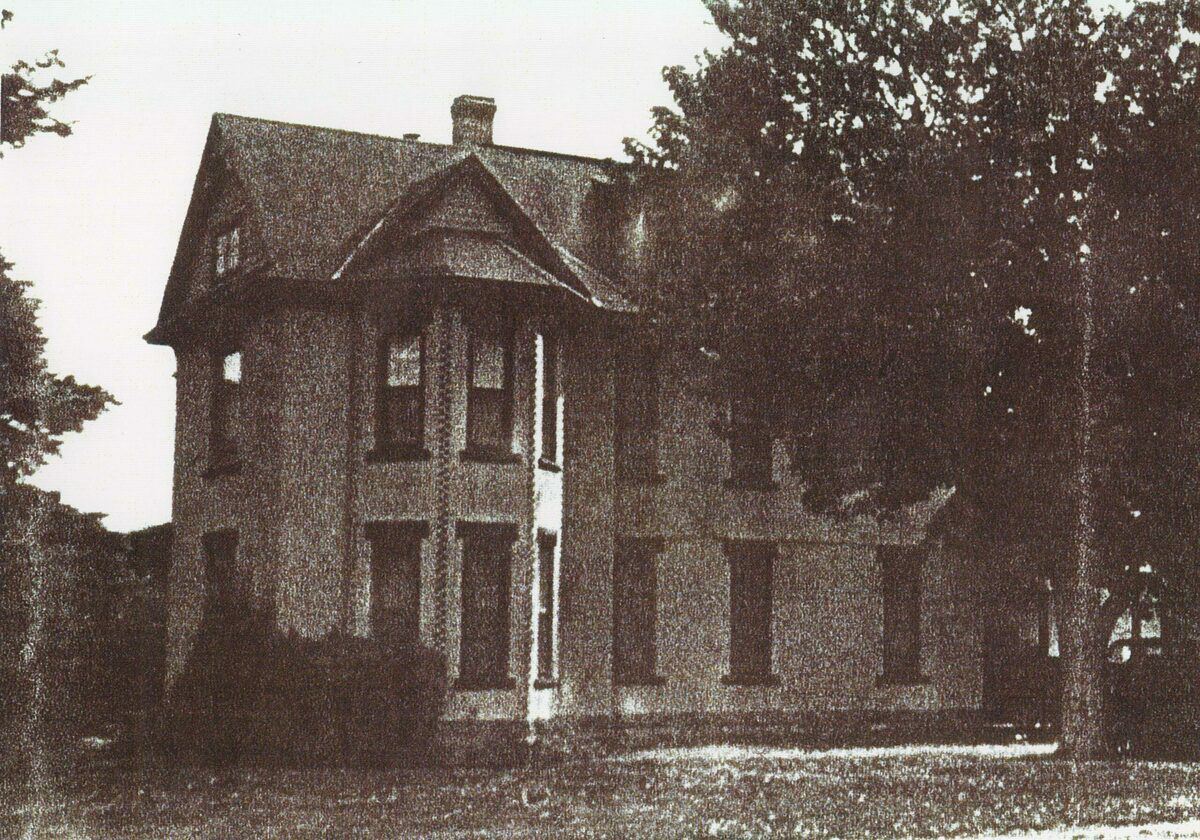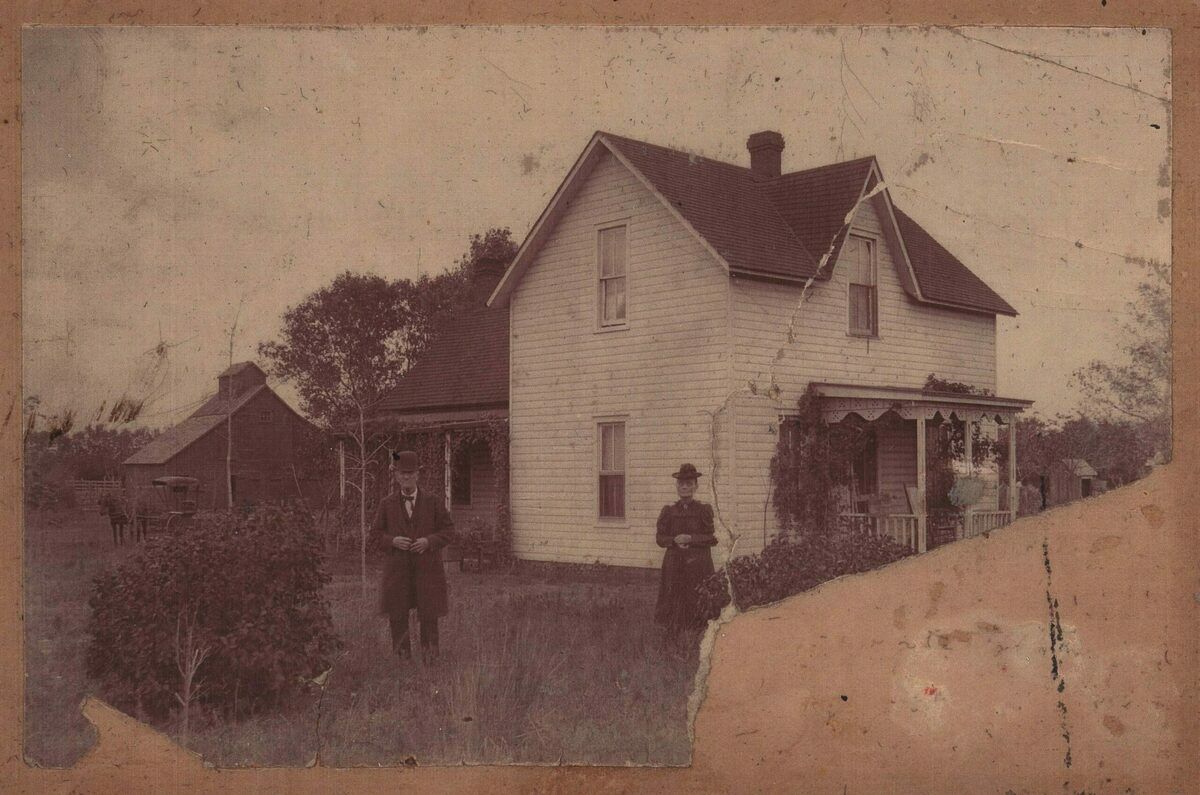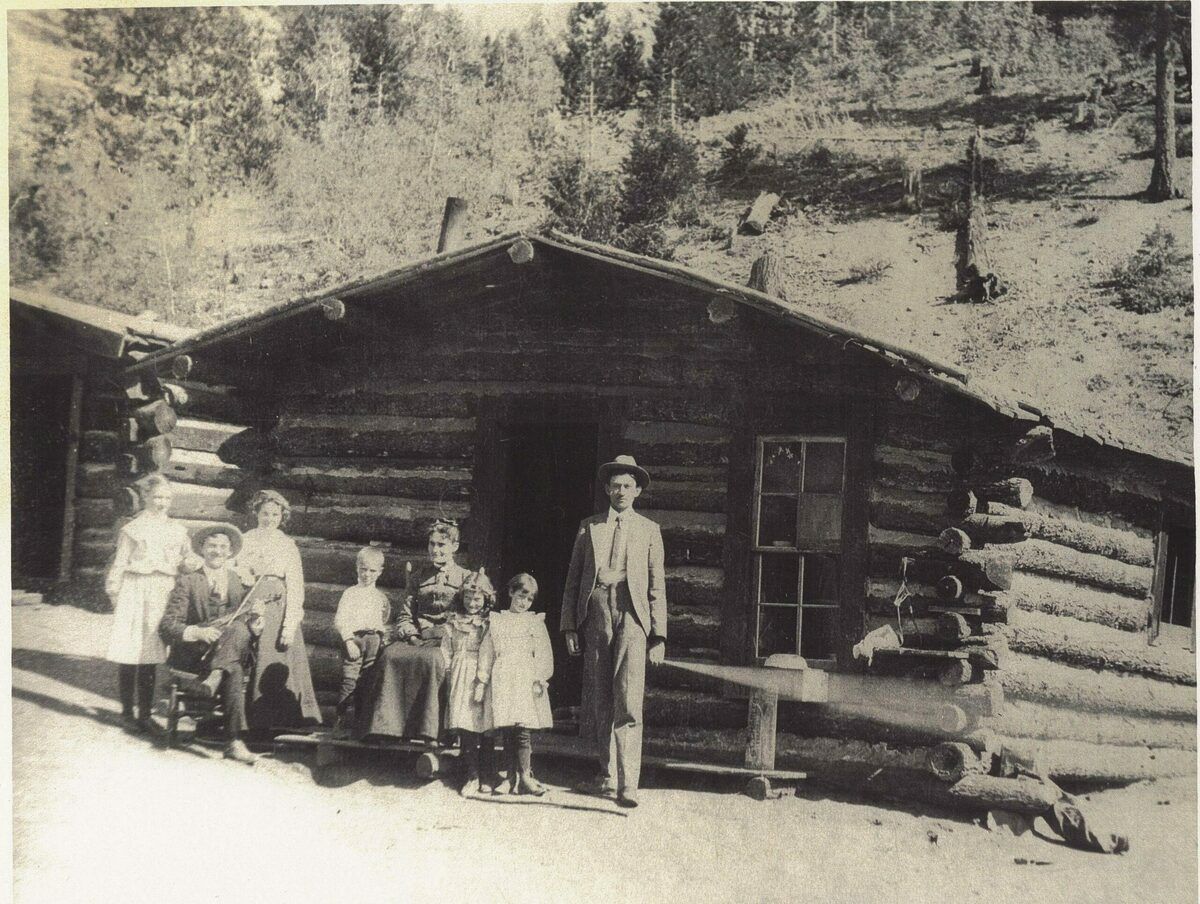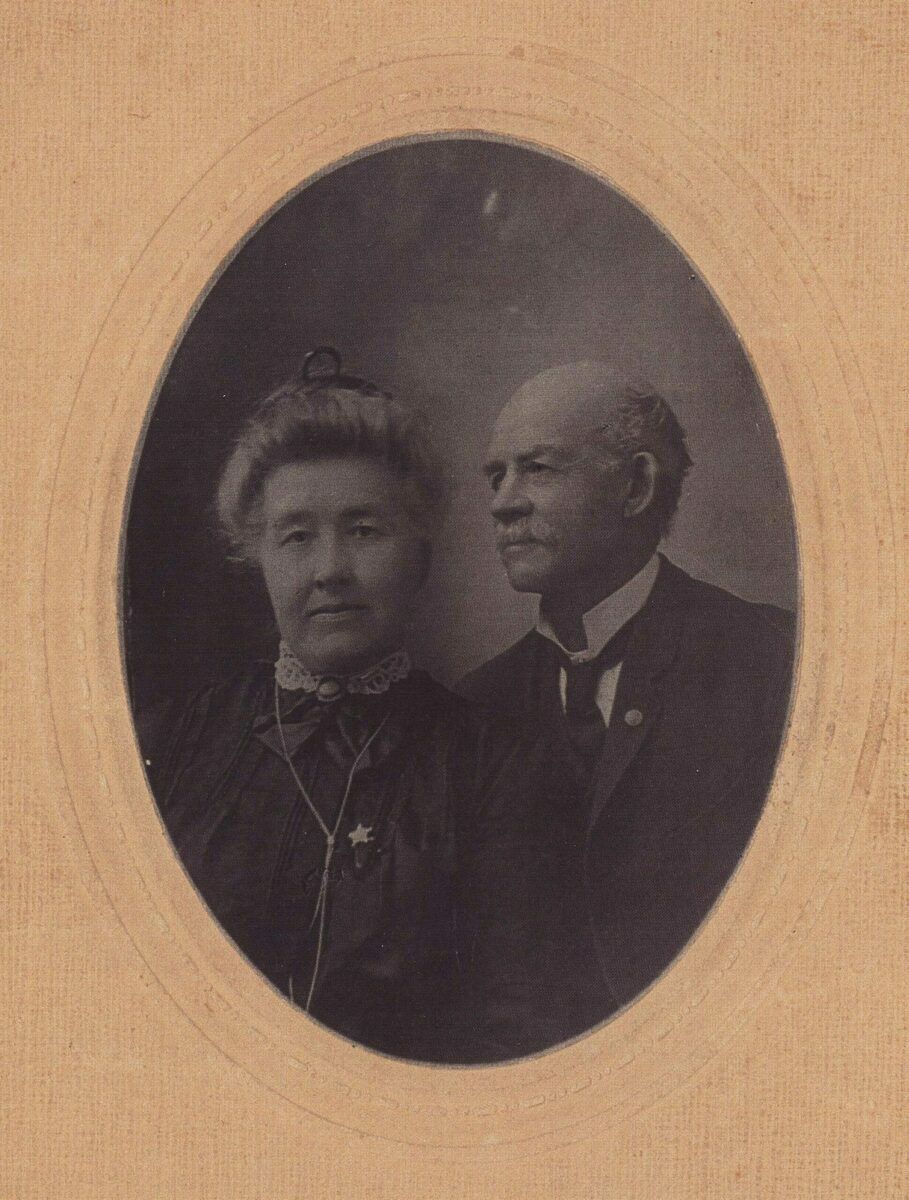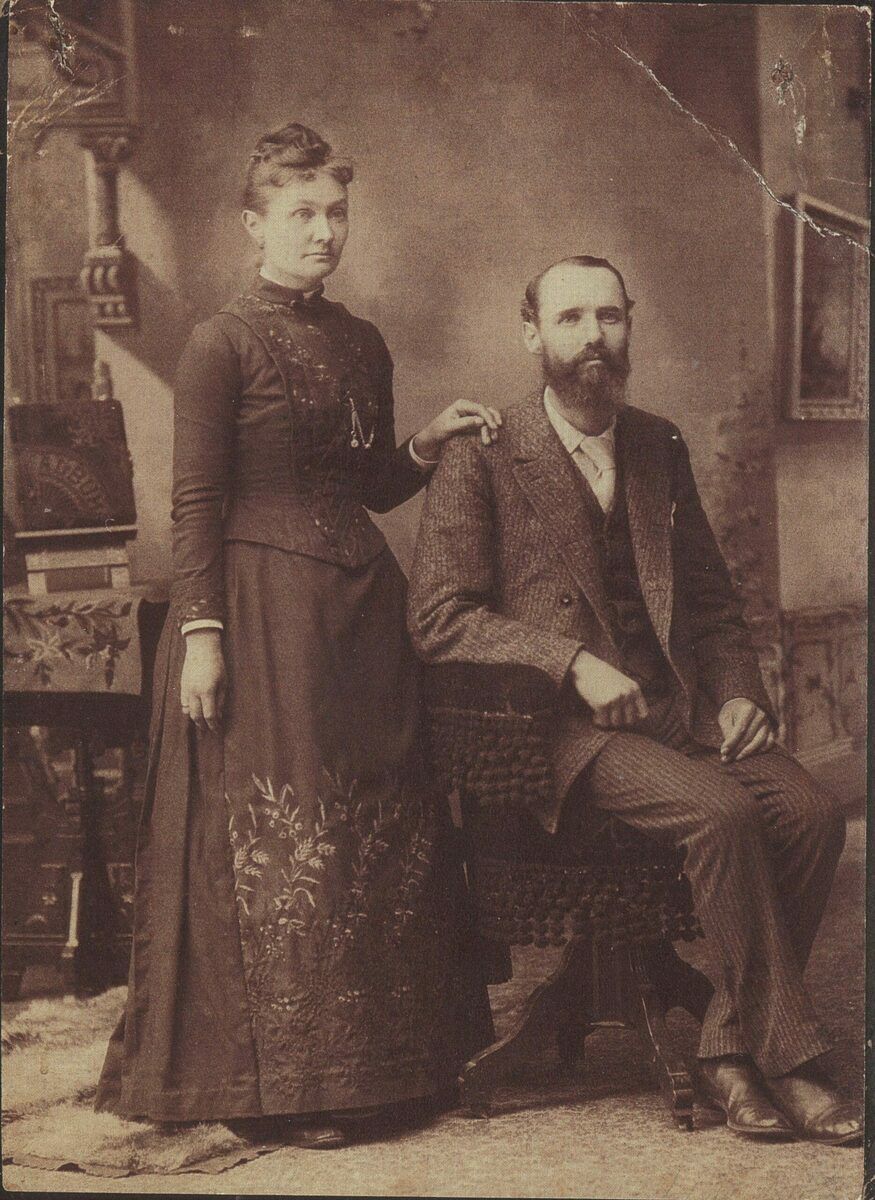Betty Regnier Collection
This collection includes genealogy and photos of the Christison family. Judge Wilburn Christison was a noted attorney in Chaffee (then Lake) County, and was a player in the Lake County War, a period of unrest in which several people were murdered, including Judge Elias Dyer, son of the ‘Snowshoe Itinerant’ Father John Dyer.
A few members of the Christison family:
Orric – “Aura”
John
Myrtle
Charlie (neighbor man)
Nancy “mother”
Helen – Hazel
– Judge Wilburn Christison’s obit is from an unknown newspaper (possibly from Park County, Colorado area.) –
He Succumbs to Pneumonia on Monday Night.–Sketch of a Notable Life
Judge Wilburn Christison passed from life into the unknown, about midnight, on Monday, the 7th, and in his death the community mourns a pioneer in Colorado, a fearless advocate of justice and one who has, during a large portion of his life, been a faithful servant of the people. Whatever were his faults, his virtues so predominated that we have only good to write of him at this hour.
The judge’s life was an eventful one, though he was but fifty-five at this time. It has been the pleasure of the writer to sit for hours at a time and listen to him discoursing on the many stirring events that marked the early history of the State, the transition period, when these western wilds were passing from a perfect wilderness to a state of semi-civilization. Those were “the times that tried men’s souls,” and brought out the mettle of the frontiersmen. The judge was never boastful of the part he performed in working out these changes, but he was always interesting, and often eloquent, in his description of scenes of danger and trial with which he had evidently been most intimate.
He was born in Jackson county, Missouri, April 14th, 1827, and Jackson county was then on the far frontier. Doubtless, his early education imbued him with the love of adventure, which could only be satisfied by following the Star of Empire westward, or rather keeping the lead in the march, for we find that in 1856 he moved to Kansas. The history of that state from that time till [sic] 1861, is too well known to need much mention. It was chaos struggling to find order and law warring against border ruffianism. By ’60 the peace loving element had gained the ascendancy and Colorado was then causing a furore, on account of the gold discoveries. With a family of young children, the Judge and his faithful helpmate again joined the march, and 1861 found them located on Cash creek, near the Arkansas, a then wild region, frequented more by Indians than any other people.
The judge practiced law when there was opportunity, at Granite, the county seat of Lake county, mined, and opened a trading post with the Indians. His manner inspired confidence among the simple inhabitants of the neighboring fastnesses, and he soon reckoned among his fast friends, old Colorow, Sagauche and other noted chiefs and braves. He served as County Judge of Lake county for one term and was re-elected, but resigned shortly after, having decided to remove to Fairplay in 1873. The same fall he was elected County Judge of Park county and served the people faithfully in that office for two terms. His mind was singularly bright and his judgement clear, during these years, and he established a wide reputation for judicial acumen.
It was during these years that the Judge was connected with the exciting contest between two elements struggling for the supremacy in Lake county. He defended Elijah Gibbs, and secured his acquittal on a charge of murder, though Gibbs was known to have shot at least three men. Briefly summarized the facts were as follows: One night George Harrington, a store keeper on Gas Creek, found that his house was on fire, and going out to quench it he was shot by some one hid in the brush. There had been trouble between the two, and the neighbors were not slow to accuse Gibbs of the murder. A party started to lynch him, but he got wind of their coming and, barricading his cabin, stood a siege in which he killed three of the vigilantes and wounded a fourth. The next day he gave himself up and was tried and, Judge Christison appearing for him, was acquitted. He left at once for Texas. Out of this affair grew a terribly bitter feud. The vigilantes were constantly warring upon all who had been Gibbs’ friends. Some terrible depredations were committed, and Judge Elias Dyer, who was then acting as District Judge, was shot dead in his chair in the court room at Granite, on account of an attempt of the court to punish this lawlessness. Incidentally it may be mentioned that all the leaders of this lawless element have since come to some cvil [sic] end, as if an avenger were following them. Wm. Nolan became crazy, Anderson Gerry drowned himself in a fit of desperation, James Moore was killed in a row at Trinidad, James Deeming went crazy and the frightful death of Charles Nachtrieb last fall is still fresh in the minds of our readers. All of these names will be familiar to those who knew Judge Christison in pioneer days, and will serve to recall a thousand and one instances in which the deceased was an able and eloquent advocate of the right.
Judge Christison leaves a wife and eight children to mourn his untimely death. He leaves also a large circle of friends who will sympathize sincerely and deeply with them. The funeral services were performed at the house yesterday afternoon by Rev. H. J. Huston, in the presence of a large number of citizens. The members of Doric Lodge, A. F. & A. M., were present in a body to do the last service for a departed brother.
Notice. • A meeting of the bar of Park county will be held at the County Court room on Monday, Feb. 13th, 1882, at 10 o’clock a. m., to take action in regard to the death of W. Christison Esq.
From genealogical notes included:
Wilburn Christison was born April 14, 1827 at Platt City, Mo., and was married to Elizabeth Jane Lewis either September 24 or 26, 1848 at Platt City, Mo. He died Feb. 6, 1882 at Fairplay, Colo., and was survived by his wife until her death May 31, 1898 at Howard, Colo.
Their nine children:
William Leslie (b. April 2, 1850)
Virgil Ernest (Oct. 24, 1852-Aug. 7, 1939)
Arthur Boon (Dec. 3, 1853-Aug. 17, 1864
Clara Columbia (Apr. 17, 1857-May 31, 1913)
John Celdon (Mar. 30, 1859-Oct. 3, 1890)
Mary Alwilda (Sept. 17, 1861-Oct. 13, 1896)
Nellie Jane (b. Nov. 9, 1863)
Daniel Pennington Lewis (b. Dec. 28, 1865)
Charlie C. (Mar. 12, 1867-Apr. 29, 1892)

